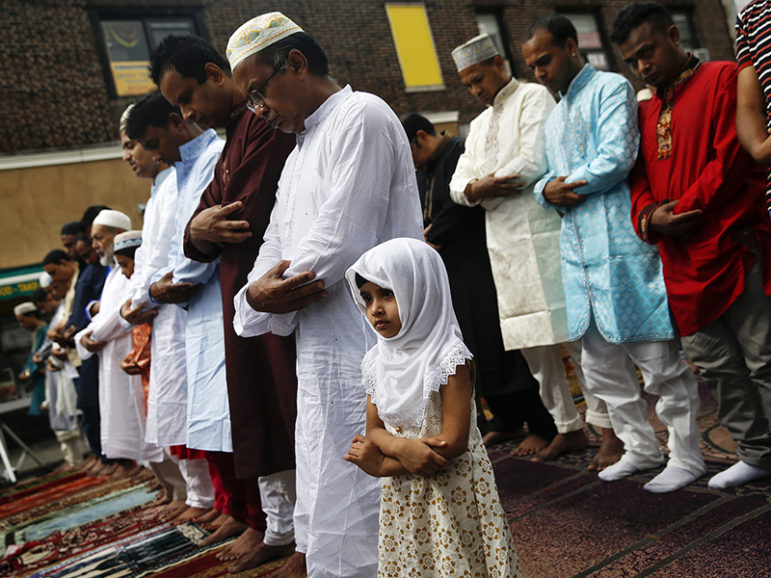(USA Today) Millions of Muslims across the globe are preparing to celebrate one of their biggest religious festivals, Eid Al Fitr, which could start this weekend.
It begins with a greeting: either “Eid Mubarak,” or “Blessed Eid.”
Here’s what you should know about the Islamic holy day.
What is Eid al-Fitr?
Eid al-Fitr is Arabic for “festival of the breaking of the fast.” The festival marks the end of the Muslim fasting month of Ramadan, the ninth month of the Islamic calendar. Muslims abstain from eating and drinking from dawn until sunset during Ramadan.
When is Eid al-Fitr observed?
Because the timing of Eid al-Fitr is based on sighting of the moon as per the Islamic lunar calendar, it can be difficult to predict when the festival will happen in any given country. While some Muslims wait to see the moon themselves, many either use the calculated time of the new moon, or base it on the declaration made in Saudi Arabia. Most of the Muslims in the United States will celebrate Eid on Sunday.
How is Eid celebrated?
In the morning, Muslims gather at mosques and prayer areas to perform Eid Prayer and greet each other. The festival is celebrated by visiting friends and relatives, hosting food parties and sharing sweets. Children not only get new clothes and shoes, but also receive cash gifts called “Eidi” from their elders and relatives.
The occasion is seen as a time of forgiveness and of giving thanks to Allah for helping people to complete their spiritual fasting. Many Muslims display their thanks by giving donations and food to those less fortunate than themselves.
How long is the Eid festival?
In most Muslim countries, the three days of Eid are observed as public and school holidays. This is not the case in the U.S., but many employers and schools allow time off for Muslim workers and children – particularly in areas with a high Muslim population.
How should you greet Muslims on Eid al-Fitr?
The most standard greetings on this occasion is “Eid Mubarak” which means “have a blessed Eid.”
(Waseem Abbasi writes for USA Today)





